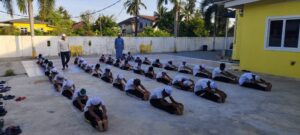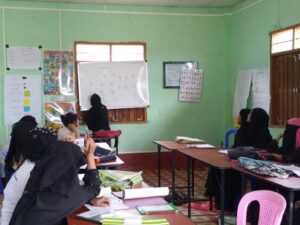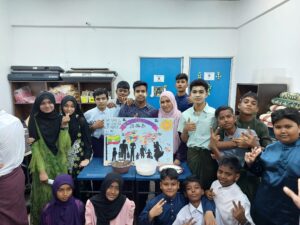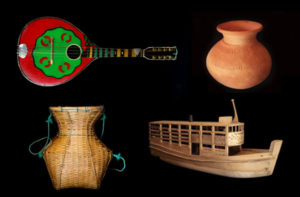In an effort to bring joy and a sense of normalcy to the lives of displaced children, Rohingya children in the refugee camps of Cox’s Bazar, Bangladesh, have actively participated in various cultural activities. These activities, organized by local NGOs, international aid organizations, and community leaders, aim to provide children with an opportunity for self-expression, emotional healing, and the restoration of a sense of identity and belonging in the face of immense hardship.
Cultural programs, including traditional music, dance, painting, and storytelling, have been introduced as part of the psychosocial support initiatives for Rohingya children. Many of these children have witnessed or experienced violence, loss, and trauma, and cultural activities help them cope with these traumatic experiences by offering a safe space for creativity and expression.
Through these activities, children are encouraged to engage with their cultural heritage, including traditional Rohingya songs, dances, and art forms, which not only bring them comfort but also strengthen their connection to their roots. The participation in these cultural programs helps to foster a sense of community and resilience, while also building bonds between children from different backgrounds within the camp.
Beyond just entertainment, these activities also serve an important educational function. They allow children to learn new skills, improve their social interactions, and gain confidence, all of which are essential for their emotional and psychological well-being. In some camps, young participants have even showcased their talents in small performances, sharing their cultural traditions with other refugees and camp visitors.
UNICEF and other humanitarian organizations have recognized the importance of integrating cultural activities into their broader relief efforts. These programs are part of a wider strategy to provide holistic care to displaced children, addressing not only their physical needs, such as food and shelter, but also their emotional and social needs.
For many Rohingya children, cultural activities offer a precious respite from the harsh realities of camp life and a glimpse into a future where they can rebuild their lives and thrive. By fostering creativity, teamwork, and cultural pride, these activities play a vital role in helping children regain their sense of dignity and hope for a better tomorrow.





